Izborsk is a representative of the most ancient Russian cities. Zheravieva Gora, located not far from the wide Gorodishchenskoye Lake, became a reliable foundation for a fortress of the 14th-15th centuries, erected by the Pskovites to defend their western borders. There are no fortresses similar to Izborsk in Russian history. This is an excellent example of ancient Russian, real Pskov building art.
The unique architectural ensemble of the fortress today is represented by fragments of towers, walls, special defensive devices, and St. Nicholas Church, the same age as the fortress, has been preserved.
In the ensemble of the Izborsk fortress one can see not only a powerful, solid defensive structure, but also a sense of the unshakable spirit, the enormous strength of the people who built fortifications on Zheravya Hill, who lived in this area, defending their native land from enemy invasions.
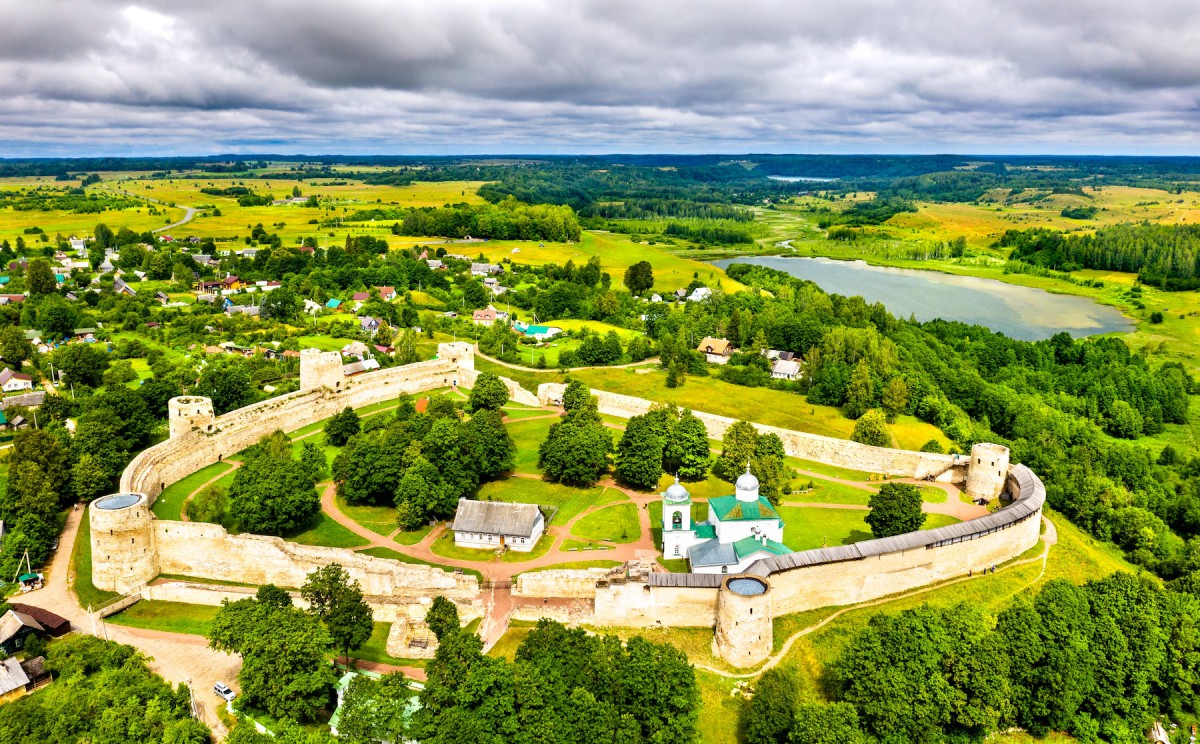
Izborsk is located 30 km from the borders of Pskov towards Riga. The Tale of Bygone Years mentions Izborsk as early as 862. Its first prince was Truvor, who ruled for a very short period of time, who died in 864. Truvor is the name of the settlement, the construction of which historians date back to the seventh-ninth centuries. Nearby is a stone cross, a legend attributed to the famous Prince Truvor.
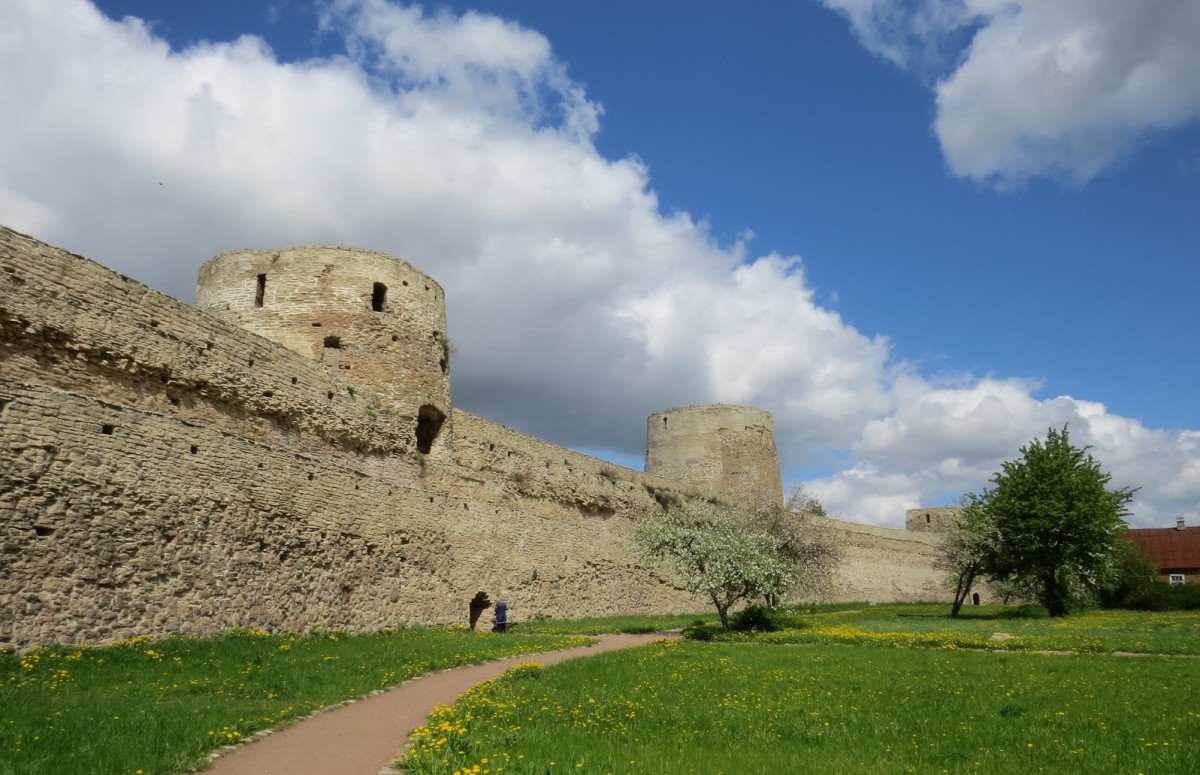
During the reign of Princess Olga, Izborsk became one of the suburbs of Pskov, took an active part in collecting tribute for Kyiv. Residents of the city became participants in Russian campaigns against Bulgaria, Byzantium, and the Pechenegs. They were engaged in trade along the waterway, lying through the Malskoye and Gorodishchenskoye lakes, with the Chudsky lands.
The beginning of the 13th century was marked by the collapse of Kievan Rus, in connection with which Izborsk was entrusted with the role of a guard city-fortress guarding the western outskirts of the Novgorod principality. The western neighbors did not leave hope to seize the adjacent lands, so the fortress was constantly attacked by the knights of the Livonian Order. In 1232, they nevertheless managed to capture the city with an unexpected attack, called the "exile". However, the joy of the enemy was short-lived, because soon Izborsk was recaptured. In 1240, the city fell again under the onslaught of the enemy, but the famous Battle of the Ice gave him freedom, returning to Russian lands.
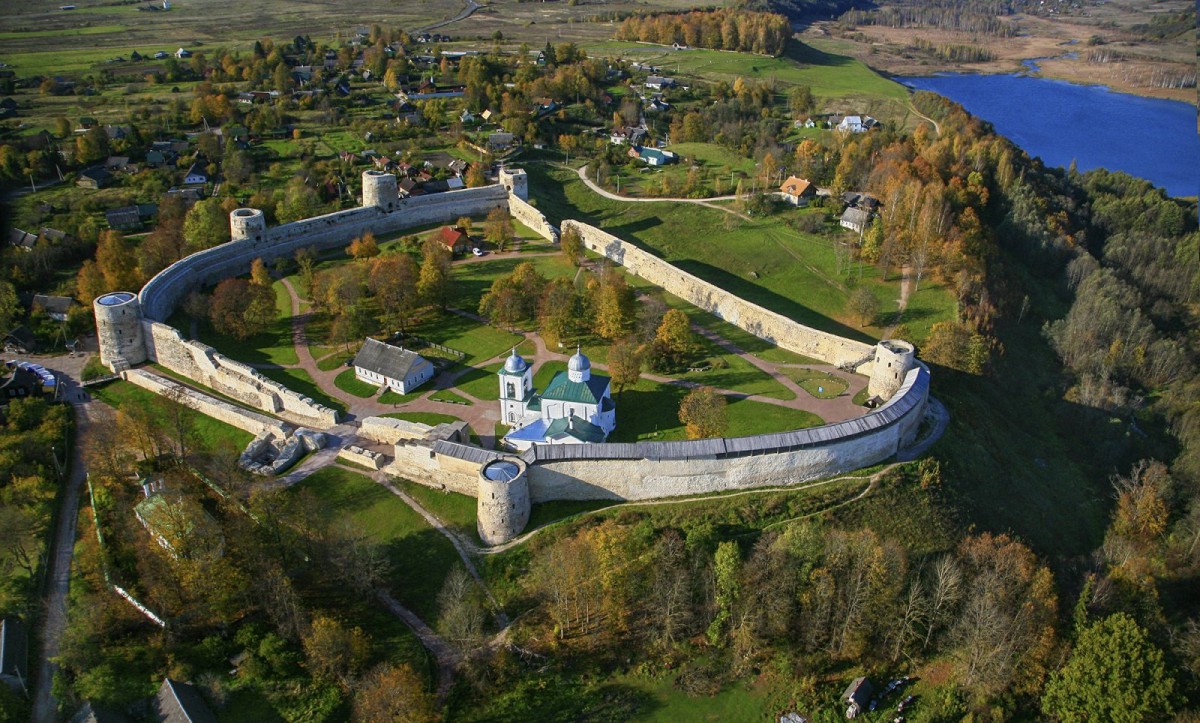
The year 1303 marked the beginning of the construction of a fortification located in the center of the village of Zheravieva Hill, fragments of which we see today. Initially, the structure was built of wood, only Lukovka (Kukovka) was made of stone. The middle of the XIV century was the time of reconstruction for the fortress. The posadnik from Pskov Sheloga replaced the wood with stone, which gave the fortification an unprecedented power at that time. After that, the Izborsk fortress became impregnable, the enemies who besieged it could not conquer.
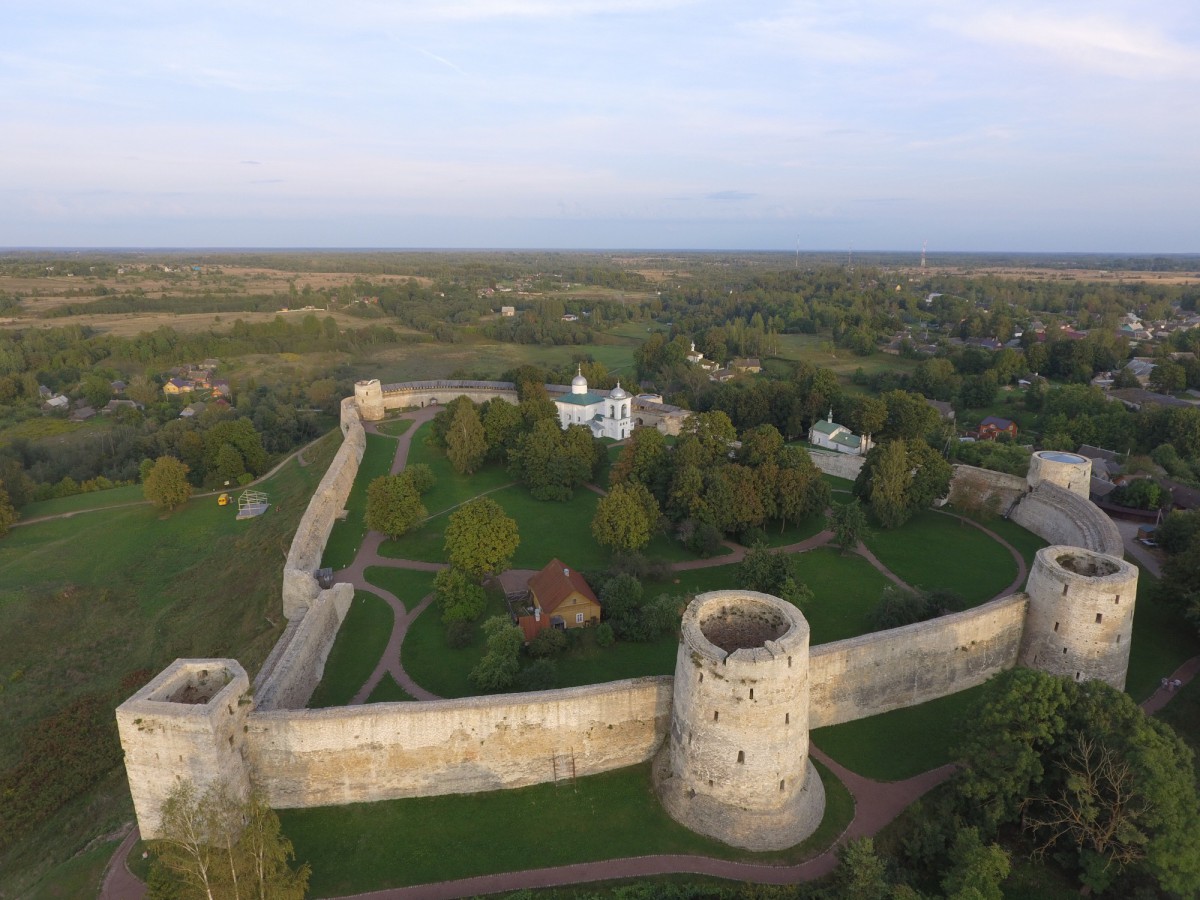
Later, the Izborsk fortress was strengthened, towers appeared on it, which have survived to this day. The Lukovka Tower is now equipped with an observation deck for tourists, which offers an excellent panorama of the Gorodishchenskoye Lake, with swans living there, scattered small villages, and the vast expanses of Russian land.
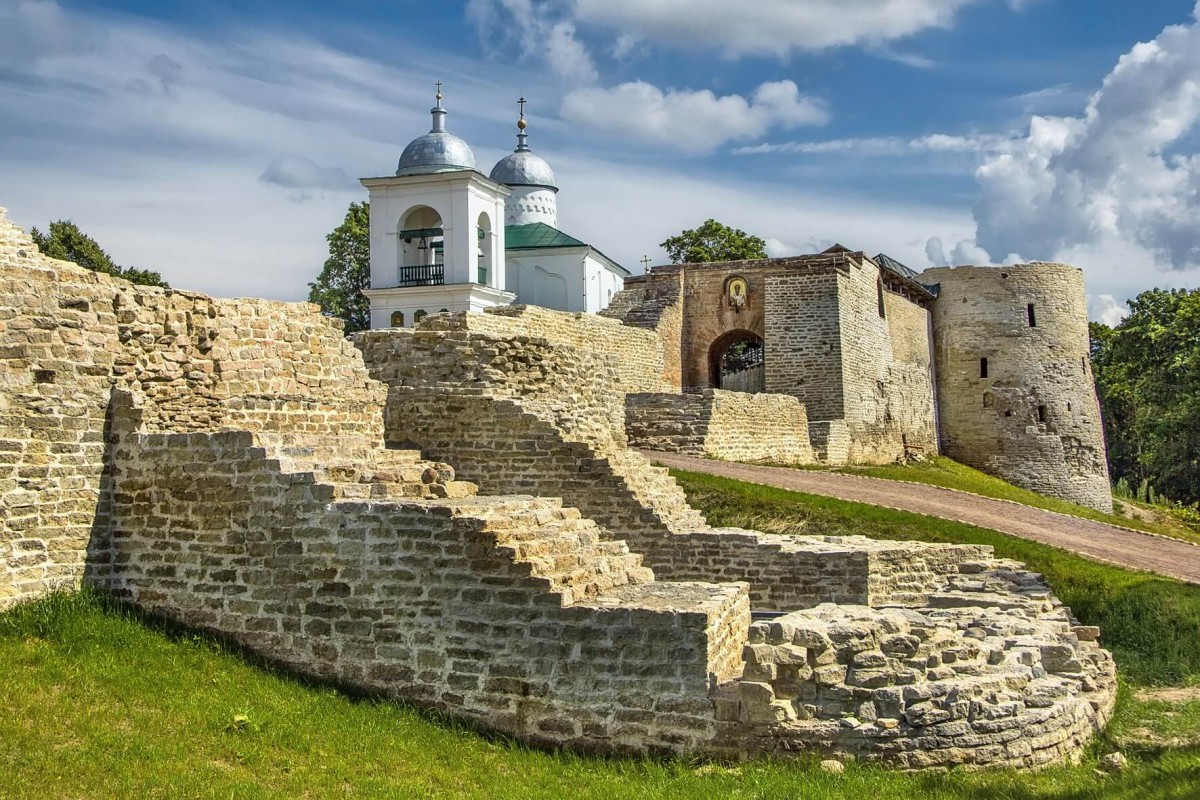
In 1581, Pskov, together with Izborsk, was annexed to Moscow. After 70 years, the troops of Stefan Batory broke the resistance of the fortress and captured it. After the signing of the settlement agreement, Izborsk was returned to Russia. In 1708, the city was part of the Ingermanland province, and two years later it was added to St. Petersburg. Since 1719, Izborsk has been a county town in the Pskov province. Its glory began to fade in 1777, when it became a provincial town without a county.
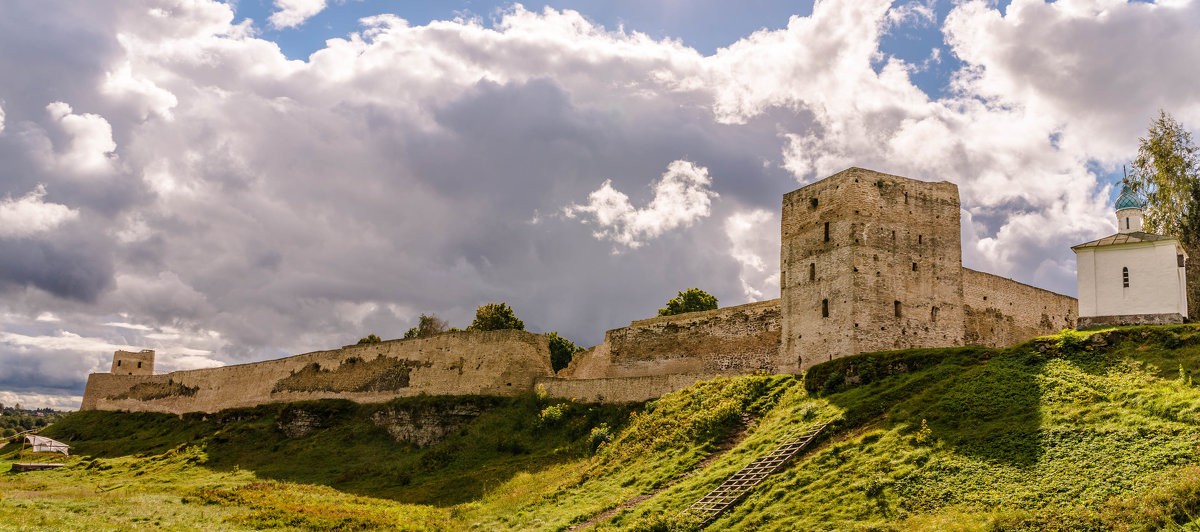
Today Izborsk is a large rural settlement, as well as a tourist center with a developed infrastructure. It will appeal to residents of the metropolis who are tired of city noise, dust, and bustle. Luxurious landscapes, the unhurried course of life allows you to think about the meaning of your life, feed the swans proudly gliding along the flawless surface of Lake Gorodishchenskoe, enjoy pies from the Russian oven, indulge in the original Russian fun - horseback riding, and the icy water of the Slovenian springs, according to legend, has an unheard of healing power.